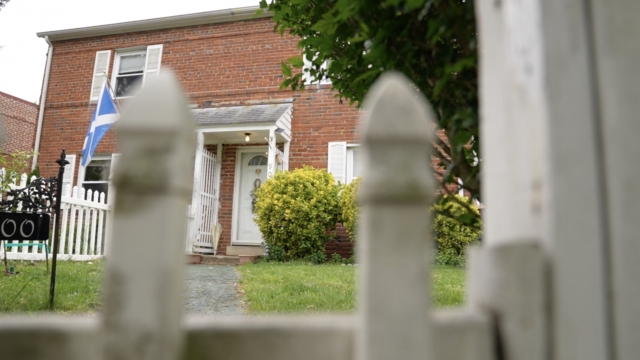It's a scene typical of neighborhoods found across the country: single-family homes lining leafy streets.
Yet, in some areas where the demand for housing is high and the stock is low, streets like these could soon take on a different look.
"The fact of the matter is, housing truly is the number one economic issue in the United States," said Charles McCullough, with the Alliance for Housing Solutions. It's one of several groups that pushed for zoning changes in Arlington, Virginia, just outside Washington, D.C.
The zoning changes passed unanimously by the county will now allow for the construction of what's known as Missing Middle Housing, in areas where only single-family homes could once be built.
"It's all those houses in between: duplexes, quads, six-plexes, eight-plexes and townhomes," McCullough said. "And it opens up so many great opportunities for our community, more than just allowing communities to be more diverse because we have increased affordability."
However, the plan also has its detractors.
SEE MORE: How zoning laws prevent affordable housing, separate classes
"It will not impact diversity in terms of racial, ethnic or socio-economic," said Anne Bodine, who is with Arlingtonians for Our Sustainable Future. "It costs $193,000 for the cheapest Missing Middle unit, which is a six-plex. And if you see what we have outlined is the median income for an African American household in Arlington at $66,000. So, it's well, well, well below what's going to be needed for even the cheapest unit."
The group opposes the new zoning rules for several reasons, including because, they say, the county's infrastructure isn't ready for it. Bodine points to other ways to address affordable housing.
"They haven't done things like rent control or added more vouchers for rentals," she said. "This is happening across the country – it's not just in Arlington. It's the push to, you know, grow."
America's affordable housing crisis is getting worse. According to a recent report from the National Low Income Housing Coalition, there is now a deficit of 7.3 million affordable homes for low-income Americans. That's 500,000 more units than were needed in 2019.
A number of states and counties around the country are looking into changing zoning laws to allow more Missing Middle Housing. Some succeeded, while others did not.
Last month, the legislature in Washington state passed a Missing Middle Housing Bill for cities with more than 75,000 people, following in the steps of states like Oregon, Maine and Massachusetts. However, in Colorado, North Carolina, Nebraska, and Maryland, similar proposals have failed.
SEE MORE: Is government 'affordable housing' in the U.S. actually affordable?
"The 'Missing Middle' conversation is really framed by a larger set of issues," said Uwe Brandes, a professor with Georgetown University's Urban and Regional Planning Program.
He said zoning underpins so much of how cities and communities continue to develop.
"There's zoning and then there's controversy," Brandes said. "Really, in cities across the United States, we're getting over a period of time where we tended to separate communities. And so 'Missing Middle' housing is a really important strategy that communities need to carefully consider."
Back in Virginia, those on both sides of the issue say that people who live elsewhere can learn from what's happening there.
"Until you see something built, you don't really understand, or you don't pay attention and you just assume 'business as usual' in your community will take care of your own interests," Bodine said. "There's still a lot of bitterness."
In the meantime, a group of residents filed a lawsuit over Arlington's new Missing Middle zoning change. All of it comes as a growing number of people continue to move into the area every year.
"This actually is going to be a win-win, not just for breaking down racial barriers, but for the environment, for aging in place," McCullough said. "I really hope that what we're doing in Arlington does serve as a pathway forward for other communities."
It's one where Missing Middle remains one of the complex pieces of the affordable housing puzzle.
Trending stories at Scrippsnews.com




